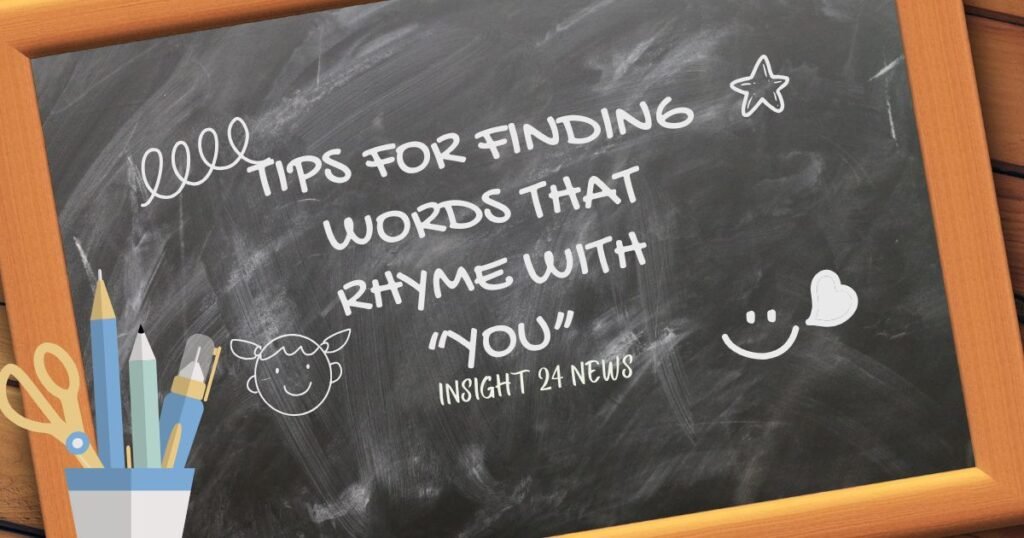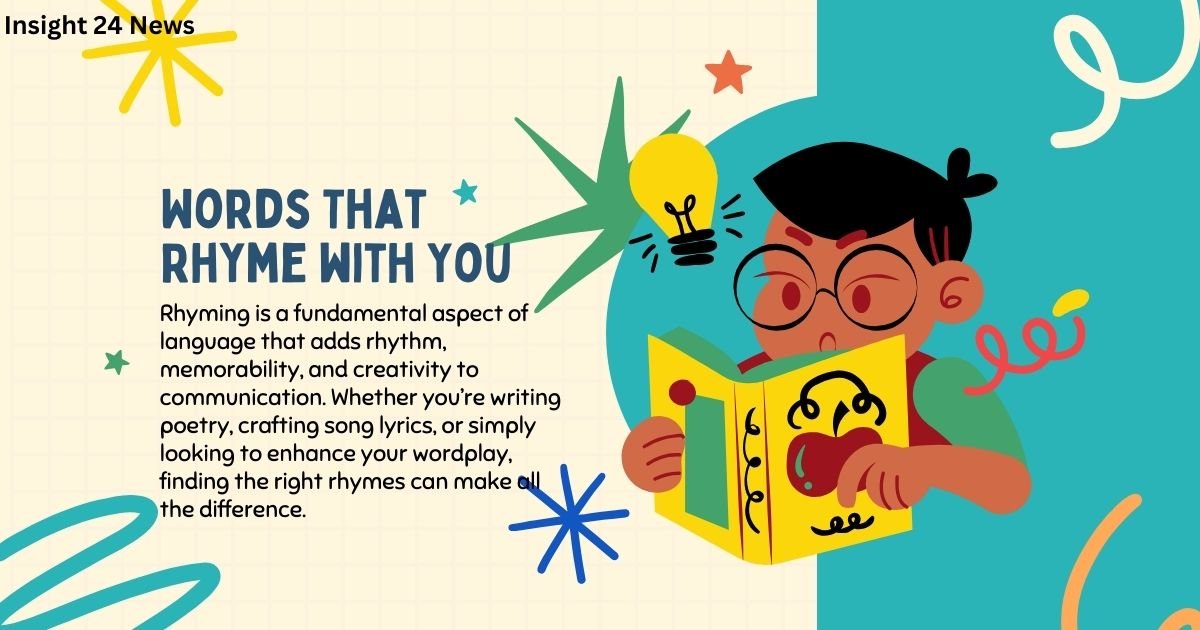Rhyming is a fundamental aspect of language that adds rhythm, memorability, and creativity to communication. Whether you’re writing poetry, crafting song lyrics, or simply looking to enhance your wordplay, finding the right rhymes can make all the difference. This article dives deep into the art of rhyming with the word “you”, showcasing a variety of rhyming words, answering common questions, and exploring fun ways to use them in everyday language.
What Does Rhyming Mean?
Rhyming refers to the repetition of similar sounds in two or more words, typically at the end of a line or phrase. It’s often used in poetry, music, and literature to create harmony and enhance the flow of words. For instance, in the phrase “true blue,” the rhyme helps convey a sense of cohesion.
The Basics of Rhyming Words
Rhyming words share the same ending sounds. For example, “you,” “true,” and “blue” rhyme because their final syllables sound alike. Rhymes are categorized as perfect rhymes (identical sounds) or near rhymes (similar but not identical sounds).
Why Are Rhyming Words Important?
Rhyming plays a key role in language and communication. It aids in memorization, making content more engaging and easier to recall. For example, nursery rhymes and song lyrics use rhyme to captivate listeners and convey messages effectively.
Common Uses of Rhyming in Language
Rhymes are commonly used in poetry, advertising slogans, and music. They make content catchy, adding a melodic quality that resonates with audiences. Rhyme is also an essential tool in language learning, helping learners grasp phonetics.
Popular Words That Rhyme with “You”
Rhyming with “you” is surprisingly versatile, offering numerous options to fit various contexts. Let’s explore some of the most popular rhyming words and their creative uses.
Top 12 Words That Rhyme with “You”
Here are 12 popular rhymes for “you”: accrue, blue, clue, construe, dew, grew, hue, queue, shoe, shrew, true, and zoo. Each of these words can be used to convey different meanings or enhance the rhythm of your writing. For instance:
- Blue: Often used in emotional or visual contexts.
- Queue: Fits scenarios related to waiting or lines.
- Zoo: Adds a playful or wild tone.
Exploring Unique Rhymes with “You”
Unique rhymes for “you” often appear in poetry or songs, providing depth and creativity. For example:
- “Through and through”: A poetic phrase to signify completeness.
- “What’s new?”: A casual rhyme that’s conversational.
- “View”: Ideal for imagery or perspective-driven content.
Frequently Asked Questions About Rhyming with “You”
People often have questions about the versatility of rhymes. Here are answers to some common inquiries.
What Are 10 Words That Rhyme?
Ten common rhyming words include blue, clue, grew, true, zoo, hue, accrue, shoe, queue, and construe. These are frequently used across songs, poems, and casual speech.
What Rhymes with “There for You”?
Phrases like “care for you,” “fair for you,” or “spare for you” rhyme with “there for you,” making them suitable for emotional or lyrical contexts.
What Rhymes with “Meet You”?
Words like “greet you,” “treat you,” or “beat you” rhyme with “meet you.” These phrases are great for romantic, casual, or competitive themes.
What Rhymes with “Hurt”?
Words like “dirt,” “shirt,” “flirt,” or “convert” rhyme with “hurt.” These can add depth to emotional or playful writing.
Tips for Finding Words That Rhyme with “You”

Finding the perfect rhyme requires tools and creativity.
Using Online Rhyming Tools
Websites and apps like RhymeZone or WordHippo help generate rhymes quickly. These platforms provide suggestions based on word endings and syllables.
The Power of a Thesaurus
A thesaurus is invaluable for finding synonyms or near rhymes. It broadens your vocabulary and enhances the variety of your writing.
Practice and Experimentation
Experiment by reading poetry or writing your own. Play with words to discover rhymes naturally and improve your linguistic skills.
Fun Examples of Rhyming with “You”
Rhyming isn’t just for formal settings; it’s a delightful part of everyday language.
Rhyming in Song Lyrics
Songs like “I Will Always Love You” by Whitney Houston showcase rhyming brilliance, using rhymes to evoke emotion and connection.
Rhyming in Poetry
Poets like Robert Frost and Emily Dickinson have used rhymes like “you” and “true” to craft timeless verses.
Rhyming in Everyday Speech
Phrases like “How are you?” or “What’s new?” demonstrate how rhymes make conversations engaging and memorable.
Final Thoughts About words that rhyme with you
Rhyming words with “you” can elevate your creativity, whether in poetry, music, or casual language. The versatility of rhymes allows for endless possibilities, enabling expression in unique and impactful ways.
You Also Like It:
